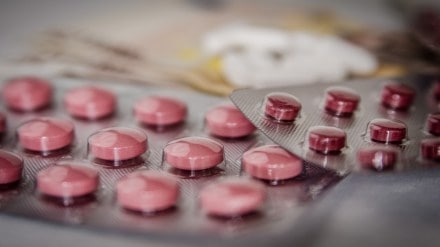By Indu Bhushan, Senior associate, Johns Hopkins University, and founding (ex) CEO, Ayushman Bharat
India has long been celebrated as the “pharmacy of the World” We supply over 60% of global vaccine demand, 40% of generic medicines to the US, and 25% of all medicines to the UK. More than 200 countries import Indian pharmaceuticals. Our affordable, high-quality medicines have saved millions of lives across the globe, especially in low- and middle-income countries where access to essential drugs would otherwise remain a distant dream. Within India too, this industry has played a pivotal role in ensuring affordable medicines for our vast population, contributing to the success of initiatives like Jan Aushadhi and Ayushman Bharat.
India’s pharmaceutical exports crossed $25 billion in 2023, a testament to the strength and scale of our industry. Our manufacturers are counted among the world’s largest, and over 650 Food and Drug Administration (FDA)-approved manufacturing facilities operate across the country. This global trust in India’s pharma ecosystem has been a source of national pride.
Yet, that trust is now at risk.
The stark reality is that the quality of medicines remains uneven, and the circulation of substandard and falsified (SF) drugs has emerged as a serious concern. A 2023 joint study by CRISIL and the Authentication Solution Providers’ Association estimated that around 20% of medicines sold in India could be either counterfeit or substandard. The World Health Organization similarly warns that one in 10 medical products circulating in low- and middle-income countries is SF.
This is not a minor regulatory issue, but a public health emergency. Behind these statistics lie real human tragedies—cancer patients receiving ineffective chemotherapy, children dying from contaminated cough syrups, and families ruined by prolonged illness and misdiagnosis. Last year, international headlines linked Indian-made cough syrups to the deaths of dozens of children in Gambia, Uzbekistan, and Cameroon, triggering global concern and undermining India’s pharmaceutical credibility.
These fake drugs not only fail to cure, they cause direct harm. They accelerate the global crisis of antimicrobial resistance, making routine infections harder to treat. They compromise treatment for chronic diseases like diabetes, cancer, and heart conditions. Most insidiously, they erode the trust patients place in the healthcare system, a trust that is difficult to rebuild once broken.
The government has begun to respond. In recent months, raids across multiple states have led to the closure of illegal manufacturing units and the seizure of thousands of fake drug consignments. The Union health ministry has initiated steps to strengthen surveillance—introducing mandatory QR codes on top-selling medicines, upgrading Central Drugs Testing Laboratories, and promoting digital tools like the “Track and Trace” mechanism.
But let us be clear—these are first steps, not the finish line. The scale of the challenge demands much more.
Most consumers are still unaware of the tools available to verify their medicines. Rural India, with its already fragile medical access, remains vulnerable to unlicensed pharmacies and unverified medicines. Even in urban areas, supply chain opacity and inconsistent enforcement allow counterfeit drugs to infiltrate legitimate pharmacies.
This is not just a regulatory failure, but a criminal act with deadly consequences. Those involved in the production and distribution of fake medicines must face swift, exemplary punishment. Laws must be strengthened to treat such offences as endangering human life, not just violating technical standards. Central and state drug authorities must coordinate better, and enforcement agencies must be adequately resourced and held accountable for results.
The pharma industry has already taken important steps to enhance patient safety and product integrity. Many companies are investing in tamper-evident packaging, advanced serialisation, and real-time supply chain tracking technologies to prevent counterfeiting. Leading manufacturers are also conducting rigorous audits and quality assurance checks while actively engaging with regulators to flag irregularities and support enforcement action. These measures reflect a growing commitment across the sector to uphold the highest standards of safety. As the threat of falsified medicines continues to evolve, sustained collaboration between industry, regulators, and law enforcement will be key to protecting public health and preserving global trust in our pharmaceutical excellence. Retailers and pharmacists have a crucial role as gatekeepers. They must be vigilant in verifying the sources of their inventory and reject any stock that lacks proper certification or traceability.
The spread of counterfeit medicines threatens to undermine our public health achievements, including the progress made through Ayushman Bharat, which aims to deliver universal health coverage to more than 500 million Indians. It also jeopardises our standing in global health markets, where trust and credibility are paramount.
India must treat this as a national crisis. We need an all-of-government, all-of-industry, and all-of-society approach. Public awareness campaigns, stronger law enforcement, and deeper industry responsibility must converge to eliminate this menace.This is not the time for incremental action. The cost of delay is counted in lives lost, diseases worsened, and trust eroded. The moment demands urgency, ambition, and resolve.
India has the strength to lead the world in both quantity and quality of medicines. Let us act now to ensure that every pill that carries a “Made in India” label also carries with it an unshakable assurance of safety, efficacy, and integrity.
